Executive Leadership
- Laura James, M.D., Principal Investigator and Director; Associate Vice Chancellor for Clinical and Translational Research, UAMS; Professor, Department of Pediatrics, College of Medicine
- Antiño R. Allen, Ph.D., Associate Director of Pathway Initiatives, STARs Program; Professor, UAMS College of Pharmacy; Associate Dean of Pipeline and Career Development, UAMS Graduate School
- Mathias Brochhausen, Ph.D., Associate Director for Strategic Collaborations, Director of the Pilot Translational and Clinical Studies Program; Professor and Vice Chair for Academic Programs and Faculty Development, Department of Biomedical Informatics, College of Medicine
Leadership Council
The Leadership Council consists of leaders representing TRI’s programs. The Leadership Council convenes regularly to provide strategic guidance to TRI’s executive leadership and assist in charting and prioritizing programmatic, organizational and financial issues.
- Michael Birrer, M.D., Ph.D., Liaison from the Winthrop P. Rockefeller Cancer Institute. Vice Chancellor and Director, Winthrop P. Rockefeller Cancer Institute, UAMS
- Shelley Crary*, M.D., Associate Director, Pilot Translational and Clinical Studies Program; Professor, Department of Pediatrics, College of Medicine
- Geoff Curran*, Ph.D., Director, Implementation Science Scholars Program; Professor, Department of Pharmacy Practice, College of Pharmacy; Research Health Scientist, Central Arkansas Veterans Healthcare System; Director, Center for Implementation Research
- Anna Huff Davis, TRI Leadership Council Community Representative
- Hari Eswaran, Ph.D., Director of Research, Institute for Digital Health & Innovation, UAMS; Professor, Department of Obstetrics and Gynecology, College of Medicine
- Brian Gittens, Ed.D., MPA, Vice Chancellor Academic Pathways and Workforce Partnerships, UAMS; Associate Professor, Department of Health Policy and Management, Fay W. Boozman College of Public Health
- Tiffany Haynes*, Ph.D., Director, Community Engagement; Associate Professor, Health Behavior and Health Education, Fay W. Boozman College of Public Health
- John Imig*, Ph.D., Health Sciences Innovation and Entrepreneurship Program and Translational Workforce Development; Chair, Department of Pharmaceutical Sciences, College of Pharmacy
- Pearl McElfish, Ph.D., MBA, Director, Integrating Special Populations; Director, Office of Community Health and Research, UAMS Northwest Regional Campus; Associate Director, Community Outreach and Engagement, Winthrop P. Rockefeller Cancer Institute; Associate Professor, Department of Internal Medicine, College of Medicine
- Fred Prior*, Ph.D., Director, Comprehensive Informatics Resource Center; Distinguished Professor and Chair, Department of Biomedical Informatics, College of Medicine
- Paula Roberson, Ph.D., Director, Biostatistics, Epidemiology and Research Design; Professor and Chair, Department of Biostatistics, Colleges of Medicine and Public Health
- Kevin Sexton*, M.D., TL1 Heath Sciences Innovation and Entrepreneurship Training Program Co-Director
- Jessica Snowden, M.D., M.S., MHPTT, Co-Director, Translational Workforce Development; Division Chief, Pediatric Infectious Disease, Vice Chair for Research and Associate Professor, Department of Pediatrics, College of Medicine; Associate Director for Clinical and Translational Research, Arkansas Children’s Research Institute
* denotes TRI program directors.
Governance
The Translational Research Institute (TRI) is governed by various councils and boards that share a base of interest and support of the TRI mission. Collectively, the governance structure is composed of diverse representatives from the University of Arkansas for Medical Sciences (UAMS) and external entities that provide institutional oversight, inform and guide TRI’s strategic vision, and ensure efficient resource allocation.
TRI’s governance structure ensures that translational research operates efficiently across all three TRI sites:
- University of Arkansas for Medical Sciences (UAMS) main campus in Little Rock and the Northwest Campus in Fayetteville
- Arkansas Children’s Hospital (ACH) and Arkansas Children’s Research Institute (ACRI)
- Central Arkansas Veterans Healthcare System (CAVHS).
External Advisory Committee
TRI’s External Advisory Committee includes nationally and internationally respected scientists and thought leaders whose expertise spans the research continuum, as well as community stakeholder members. Many External Advisory Committee members also hold leadership positions at other Clinical and Translational Science Award (CTSA) institutions. The committee conducts an annual site visit to evaluate TRI’s overall function and progress in achieving goals, provides verbal and written feedback to TRI’s executive leadership and Leadership Council, and the TRI director shares the committee’s report with the Internal Advisory Board.
| Julian Solway, M.D. (EAC Chair) | University of Chicago |
| Olveen Carrasquillo, MD, MPH | University of Miami |
| Jodi Lapidus, PhD | Oregon Health and Science University |
| Rachel Hess, M.D., M.S. | University of Utah |
| Michael Holinstat, PhD | University of Michigan |
| Clara Pelfrey, MD, MPH | Case Western Reserve University |
| W. Robert Taylor, M.D., Ph.D. | Emory University |
| Joel Tsevat, M.D. | University of Texas, San Antonio |
Internal Advisory Board
TRI’s Internal Advisory Committee is comprised of high-ranking leaders from UAMS and its partner institutions. The Committee provides a forum to facilitate collaboration and for TRI’s leadership to address any challenges that may arise in carrying out its mission. The Committee meets twice yearly with TRI’s executive leadership team.
| Cam Patterson, M.D., MBA | Chancellor, University of Arkansas for Medical Sciences |
| Stephanie Gardner, Pharm.D., Ed.D. | Senior Vice Chancellor for Academic Affairs, UAMS; Provost and Chief Strategy Officer, UAMS |
| Richard Owen, M.D. | Director/Principal Investigator for Center for Mental Healthcare and Outcomes Research, CAVHS; Associate Chief of Staff for Research, CAVHS; Professor, Departments of Psychiatry and Epidemiology, UAMS |
| William Steinbach, M.D. | Chair Department of Pediatrics & Associate Dean for Child Health; UAMS; Pediatrician-in-Chief, Arkansas Children’s |
| Dan Voth, PhD | Vice Chancellor of Research and Innovation, UAMS; Professor, Department of Microbiology and Immunology, UAMS |
| Steven A. Webber, MBChB, MRCP | Dean, College of Medicine, Executive Vice Chancellor, UAMS |
| Peter Mourani, M.D. | President, Arkansas Children's Research Institute |
| Mansour Mortazavi, Ph.D. | Vice Chancellor for Research, Innovation and Economic Development, University of Arkansas at Pine Bluff |
| Judy Pile* | Director, Arkansas Community Health Workers Association (ARCHWA) |
| Eric Peterson, PhD* | President, BioVentures |
| Matthew Waller, PhD* | Dean, Sam M. Walton College of Business, University of Arkansas at Fayetteville |
| Laura Clark, RN, MMSc* | Vice Chancellor for Academics, University of Arkansas at Hope |
| Jackson Cothren, PhD* | Director, Arkansas High Performance Computing Center, University of Arkansas at Fayetteville |
Community Advisory Board
The TRI Community Advisory Board is a diverse group of community members who are familiar with social, mental and physical health issues for children and adults in Arkansas and have a history of working collaboratively. For the most part they are drawn from local community organizations, predominantly nonprofit, with advocacy or service missions. The Community Advisory Board members represent the racial, cultural and geographical diversity of Arkansas, serving as a voice of the communities they represent. Members of the board advise TRI on issues important to various constituencies in the state, assist TRI in prioritizing research initiatives, and increase TRI’s visibility at the community level.
| Kent Broughton, Chair | Clinton School of Public Service | Little Rock |
| Jacqueline “Jackie” Burton | Mississippi Co., AR Economic Opportunity Commission | Blytheville |
| Anna Huff Davis, Chair | Arkansas Community Health Workers Association | Marvell |
| Esther Dixon | Diamonds in the Rough of Hot Springs Women's Transitional Ministries; Personal Empowerment Recovery Coalition | Hot Springs |
| Denise Donnell | JustTalk | Little Rock |
| Heather Edwards | 100 Families Initiative | Fort Smith |
| Terra Patrom | Arkansas Spinal Cord Commission | Perryville |
| Edward "Monte" Payne | Recovery Peer Support Specialist | Little Rock |
| Mireya Reith | Founding Executive Director, Arkansas United | Springdale |
| Latosha Taylor | 100 Families Initiative; National Empowerment Center | Russellville |
| Pastor Bryant Whitted | Greater Macedonia Baptist Church | Wilson |
| Rev. Willie Wade | Difference Makers of Hot Springs | Hot Springs |
| Emmanuel Navarro | Conway Apostolic Church | Conway |
| Rev. Gregory Nettles | African American Methodist Episcopal Church | Camden |
| Lucy Capelle | Grace New Beginning Church | |
| Bishop Fred Harris | LAM Foundation | Little Rock |
*Denotes a Collaborating Partner
Laura James, M.D.
Principal Investigator, TRI Director, and Associate Vice Chancellor for Clinical and Translational Research
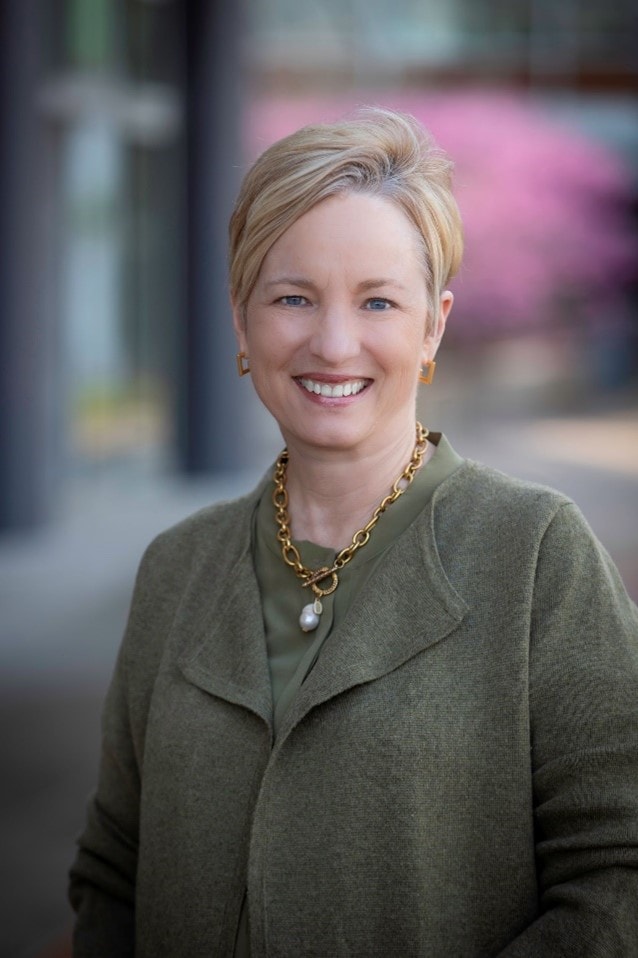
As principal investigator and director of the UAMS Translational Research Institute (TRI) and associate vice chancellor for Clinical and Translational Research, Laura James, M.D., is responsible for the overall administration and strategic development of the institute. She currently serves as the co-chair of the National Center for Advancing Translational Sciences Clinical and Translational Science Awards Program Steering Committee and is a board member of the Association for Clinical and Translational Science.
James is a professor of pediatrics at the UAMS College of Medicine and a faculty member in the Division of Clinical Pharmacology and Toxicology within the Section of Emergency Medicine at Arkansas Children’s Hospital.
She has extensive experience in clinical and translational research in NIH-supported research networks. Her research program in acetaminophen toxicity has been funded by the National Institute of Diabetes and Digestive and Kidney Diseases (NIDDK) since 1999. In 2006, she co-founded Acetaminophen Toxicity Diagnostics (ATD) LLC, to develop a novel laboratory test, AcetaSTAT, for the rapid detection of acetaminophen toxicity. This research is funded by the Small Business Technology Transfer program of NIDDK.
James was named an inaugural fellow of the Arkansas Research Alliance in 2014. She received her medical degree from the University of South Carolina and completed a pediatrics residency at UAMS. She completed fellowships in pediatric emergency medicine and pediatric pharmacology and toxicology at the University of Alabama at Birmingham and UAMS, respectively. She joined the faculty of UAMS in 1994.
Antiño R. Allen, Ph.D.
Associate Director of Diversity Initiatives, STARs Program; Professor, UAMS College of Pharmacy; Associate Dean of Pipeline and Career Development, UAMS Graduate School
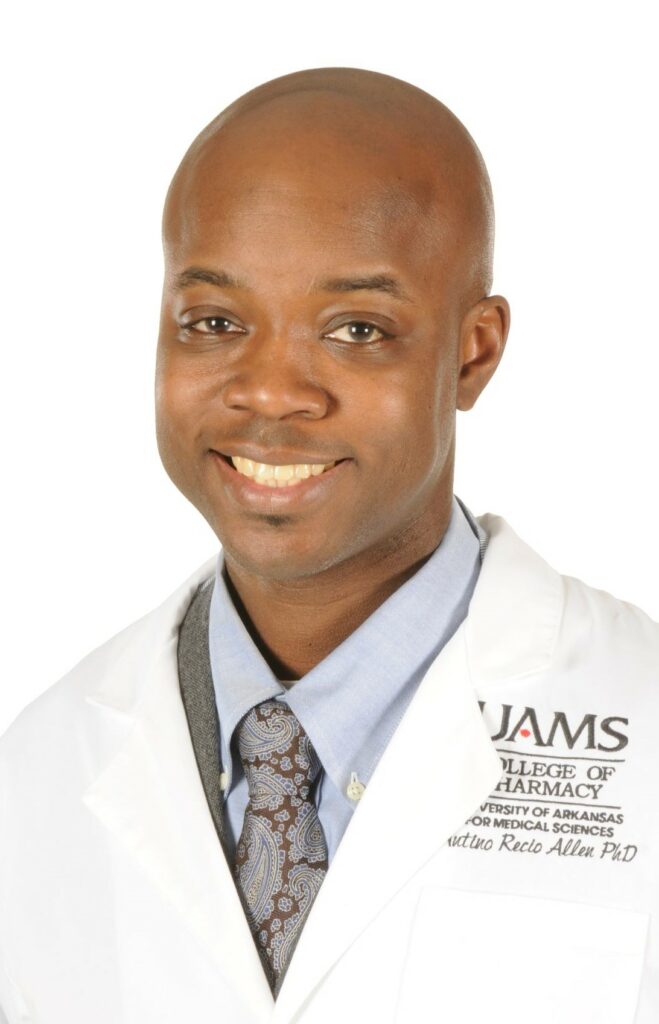
Antiño R. Allen, Ph.D., is associate director of Pathway Initiatives at TRI, where he directs the Strategies for Training and Advancing Underrepresented Researchers (STARs) Program, an effort to foster more research from underrepresented faculty. The program is a collaboration between TRI and the Academic Pathways and Workforce Partnerships Program at UAMS.
He also oversees educational grant opportunities available through TRI’s Clinical and Translational Science Award funded by the National Center for Advancing Translational Sciences at the National Institutes of Health.
Allen is a professor in the UAMS College of Pharmacy and associate dean of Pipeline and Career Development at the Graduate School. He works with program directors at the Graduate School in pipeline and recruiting activities and coordinates all career development activities for currently enrolled students.
Allen earned his Bachelor of Science at Jackson State University and his master’s and PhD at Indiana University. He completed a post-doctoral fellowship at the University of California, San Francisco. He is also a veteran of the U.S. Army where he attained the rank of captain before returning to complete his PhD. He joined the College of Pharmacy in 2013 and has had extensive experience in mentoring graduate students, as well as undergraduate and high school students.
He has a robust neuroscience-based research program that has been continually funded by NIH and NASA. His laboratory is investigating molecular mechanisms and behavioral outcomes of chemotherapy treatment and radiation exposure.
Mathias Brochhausen, Ph.D.

Community Engagement , Co-Director, K12 Mentored Research Career Development Award Program
Dr. Mathias Brochhausen is Professor & Vice-Chair for Academic Programs and Faculty Development. Dr. Brochhausen received a Ph.D. in Philosophy from the University of Mainz in Mainz, Germany, as well as a M.A. in Philosophy, Physical Anthropology, and Sociology. His current research interests include knowledge representation, biomedical vocabularies and ontologies, and semantic web technologies in biology and medicine.

Shelley Crary, M.D.
Co-Associate Director, Pilot Translational and Clinical Studies Program
Dr. Shelley Crary is a Pediatric Hematologist-Oncologist. Her primary clinical and research interests are focused on the care of children with bleeding or clotting disorders. She also has a strong interest in the hematologic aspects and medical management of complex vascular anomalies and works closely with the vascular anomalies multidisciplinary team at Arkansas Children’s. Dr. Crary also serves as a mentor in the Pediatric Hematology/Oncology Fellowship and Pediatric Residency Programs. She served as a Faculty Director for the Master of Science in Clinical and Translational Sciences (MS-CTS) Program.
Dr. Crary received her undergraduate degree in 1996 from Washington University in St. Louis, Missouri. She then attended medical school at Tulane University School of Medicine in New Orleans, Louisiana. She completed Pediatrics residency at Vanderbilt University in 2003 and Pediatric Hematology-Oncology fellowship at University of Texas Southwestern Medical School in Dallas, Texas, in 2006. She also obtained a Master’s Degree in Clinical Science in 2009 from UT Southwestern.
Geoffrey Curran, Ph.D.
Implementation Science Director
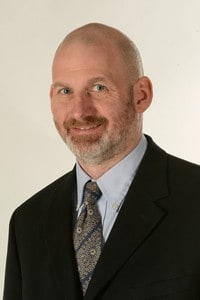
Geoffrey Curran, Ph.D., is a TRI program director and leads TRI’s efforts in implementation science.
Curran is director of the UAMS Center for Implementation Research and is professor of pharmacy practice (College of Pharmacy) and psychiatry (College of Medicine). He is also a research health scientist at Central Arkansas Veterans Healthcare System. He has served as principal investigator (PI) on numerous VA and National Institutes of Health (NIH)-funded implementation research projects, and he established the concept of the “hybrid effectiveness-implementation design,” now in broad use. He served as one of 10 national experts on the NIH Dissemination and Implementation Research Design and Methods Working Group with the goal of developing guidance and tools for selecting implementation research designs.
Since joining UAMS in 1999 he has been conducting mental health services research, with a focus on implementation research for the last 15+ years. He has studied and published manuscripts primarily on: 1) adaptation and implementation of evidence-based practices in a variety of clinical and community settings, and 2) the broader area of perceived need, treatment utilization, treatment retention, and outcomes in mental health/substance use disorders. The UAMS Center for Implementation Research’s mission is synergistic with the goals and activities of the TRI Implementation Science Optional Module. Curran teaches two graduate-level courses in implementation science and methods in the UAMS College of Public Health. He has experience establishing coalitions of partners to facilitate implementation research including the Federally Qualified Health Centers around Arkansas.
Curran earned his master’s and doctorate degrees in sociology from Rutgers University in New Brunswick, N.J.
Hari Eswaran, Ph.D.
Liaison from the Institute for Digital Health & Innovation

Hari Eswaran, Ph.D. is a standing member of Team Science group and in the leadership council at UAMS Translational Research Institute to help navigate the digital health portfolio.
He is currently a Professor and Director of Research with the Department of Obstetrics and Gynecology and the Institute for Digital Health & Innovation (IDHI), University of Arkansas for Medical Sciences (UAMS). He has a secondary appointment in Department of Biomedical Informatics. Currently, he leads the IDHI based South Central Telehealth Resource Center, one of just 14 federally-designated Telehealth Resource Centers located across the nation.
Funded by the National Institutes of Health (NIH) for the past 20 years, Eswaran’s area of research focuses on digital health and biomedical instrumentation with special emphasis on fetal and maternal monitoring during pregnancy. Over the years, he has undertaken several non-invasive fetal monitoring studies and has published over 100 papers in these areas. He has served on several NIH review panels and, at present, is a standing member of the NIH Biocomputing and Health Informatics panel. Dr. Eswaran has organized various workshops in schools of technology, medicine, and nursing including joint Indo-US telemedicine collaborations, some of which the former President of India, Dr. APJ Kalam, launched. He has been part of several Scientific Committees and Advisory Boards related to global and rural health programs including the national Society for Education and Advancement in Research in Connected Health (SEARCH). He an Interdisciplinary Research Fellow at a national leadership program supported by the Robert Wood Johnson Foundation (RWJF) to equip teams of researchers and on-the-ground change agents with advanced leadership skills and a clear focus on health and equity, allowing them to apply health research and policy to meet the pressing needs of communities.
Eswaran received the B.Sc. (Honors) Physics and M.Sc. (Electronics) degrees from the University of Delhi, India, M.S. (Physics) from the University of Mississippi and Ph.D. in Applied Sciences (Biomedical) from the University of Arkansas at Little Rock.
Brian Gittens, Ed.D., MPA
Vice Chancellor for Academic Pathways and Workforce Partnerships, UAMS; Associate Professor, Department of Health Policy and Management
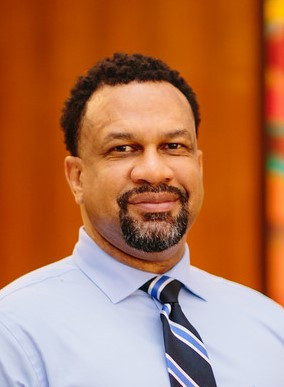
Dr. Brian Gittens specializes in organizational and leadership development, strategic diversity and inclusion, and change management. Brian is a human resource professional, researcher, educator, and consultant with more than 30 years of operational and administrative experience. He has successfully led and collaborated on the design and implementation of organization-wide workforce partnerships and organizational development programs.
Brian is a graduate of the George Washington University (EdD and Virginia Tech (B.A. Communications and Masters in Public Administration). He has held leadership roles at the University of Virginia School of Medicine and the School of Medicine and Public Health at UW-Madison. He is currently serving as the Vice Chancellor for Academic Pathways and Workforce Partnerships for the University of Arkansas for Medical Sciences.
Tiffany Haynes, Ph.D.
Community-Based Participatory Research
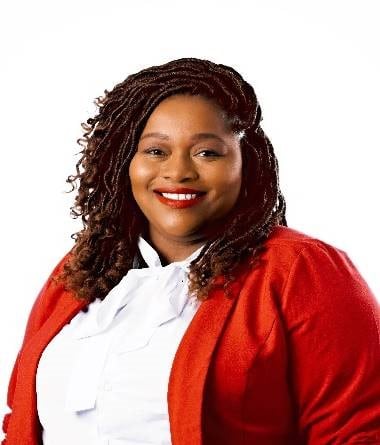
Tiffany Hayes, Ph.D. is a clinical psychologist with expertise in mental health services research, intervention development, and community-based participatory research (CBPR), serves as Director of TRI’s Community Engagement Core.
Haynes is an Associate Professor in the Department of Health Behavior and Health Education within the Fay W. Boozman College of Public Health. She has served as principal investigator on several National Institutes of Health (NIH) and Patient-Centered Outcome Research Institute (PCORI) funded grants that focus on the development of mental health interventions that can be utilized within community-based settings such as churches.
Currently, Haynes is the PI of a NIMHD-funded study that seeks to test the effectiveness of a faith-based depression intervention in partnership with 24 churches across Arkansas. Additionally, Haynes is a co-founder of the Arkansas FAITH Network, a coalition of places of worship, health care organizations, and health researchers, that partner together to reduce health disparities in Arkansas.
Dr. Haynes earned her master’s and doctorate degrees in clinical psychology from the University of Michigan in Ann Arbor, MI.
Anna Huff Davis
TRI Leadership Council Community Representative
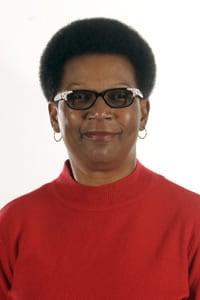
Anna Huff Davis has been a community research advocate providing training and partnering with researchers on multiple studies over the past 20 years. She has been a community liaison with the COPH’s Office of Community-Based Public Health since 2001. She served as a community partner on Arkansas’ Nutritional Intervention Research Initiative (NIRI) in the Mississippi River Delta funded by USDA and worked with Dr. Stewart to develop and implement community training on Community Based Participatory Research (CBPR) and the ethics of research for communities involved in NIRI. Since that time she has served as community deputy director of the Arkansas Prevention Research Center, as chair of the community advisory board for the TRI, as recruiter for the FRESH and REJOICE studies among many others. She has co-instructed the Community Scientist Academy (CSA) and serves as the primary facilitator for the Dos and Don’ts of Community Engagement workshop. She also serves as the chair of the board of the Arkansas Community Health Worker Association. As a life-long African American resident of Marvell, Arkansas in the Mississippi River Delta of Arkansas, she brings an invaluable community research partner’s perspective to the community engagement. She also co-instruct Community Based Public Health Program Design in the College of Public Health.
She received a degree in business administration from the University of Arkansas at Pine Bluff, certification for the Home Instruction for Parents of Preschool Youngsters (HIPPY) program at Hebrew University of Jerusalem, Israel, and has completed community-based education graduate coursework at the University of California, Davis.
Pearl McElfish, Ph.D., MBA
Integrating Special Populations; Associate Director of Community Outreach and Engagement, Winthrop P. Rockefeller Cancer Institute
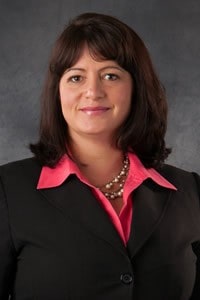
Pearl McElfish, Ph.D., MBA, serves as the Vice Chancellor for the University of Arkansas for Medical Sciences (UAMS) Northwest Regional Campus in Fayetteville, Arkansas, oversees the Office of Community Health and Research, serves as Director of the Center for Pacific Islander Health, and holds faculty positions in the UAMS Colleges of Medicine, Nursing, and Public Health. She is the founder of the Office of Community Health and Research at UAMS Northwest Regional Campus and of the Center for Pacific Islander Health at UAMS. Dr. McElfish leads the community outreach and engagement efforts for the Winthrop P. Rockefeller Cancer Institute.
Since late 2014, she has been awarded more than $70 million in federal and private foundation grants for investment in community health in Northwest Arkansas and published more than 150 peer-reviewed articles.
McElfish holds a PhD in public policy, a master’s degree in business administration, and a master’s degree in community and economic development. She is a certified Project Management Professional and a Certified Community Developer and has more than 15 years of experience working in health care administration and community health.
McElfish’s research focuses on reducing health disparities with Pacific Islander and Hispanic Communities. She also conducts food systems research and methodological research related to the best methods for conducting community-based participatory research and for disseminating research results to participants and communities. She has a history of funding from the Centers for Disease Control and Prevention (CDC), the Patient-Centered Outcomes Research Institute (PCORI), the National Institutes of Health (NIH), the United States Department of Agriculture (USDA), the Robert Wood Johnson Foundation, and other private foundations.
Fred Prior, Ph.D.
Biomedical Informatics
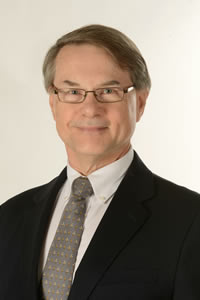
Fred Prior, Ph.D., is a TRI program director and leads TRI’s Comprehensive Informatics Resource Center (CIRC), overseeing all biomedical informatics efforts for TRI.
He is a professor and the inaugural chair of the Department of Biomedical Informatics, and professor of Radiology in the UAMS College of Medicine. He has extensive research and development (R&D) experience in industry and academia focused on the design of advanced medical information management and imaging technologies. He has held senior management positions in a variety of R&D environments ranging from Silicon Valley startups to major multi-national corporations in the United States and Europe.
Prior’s research interests include cancer and neuro imaging informatics, radiomics, open access data publication and applications of distributed machine learning. He serves as principle investigator and director of the National Cancer Institute’s Cancer Imaging Archive project and is the lead PI of an NCI ITCR team exploring the integration of radiomics and pathomics. Recently Prior’s team joined a consortium of European colleagues to successfully compete for a Horizon 2020 award from the EU to develop a platform for distributed data management and machine learning to advance precision medicine in oncology.
Dr. Prior is an editorial board member for Nature Scientific Data and an associate editor of several other leading scientific journals. He serves as a reviewer for numerous scientific and engineering journals as well as U.S. and European funding agencies. He is the author of over 100 scientific publications and holds seven U.S. and international patents.
Paula Roberson, Ph.D.
Biostatistics, Epidemiology, and Research Design (BERD)
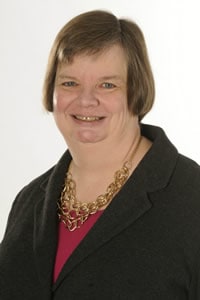
Paula Roberson, Ph.D., leader of TRI’s Biostatistics, Epidemiology and Research Design (BERD) function, is professor and chair of the UAMS Department of Biostatistics, which is jointly administered by the Colleges of Medicine and Public Health. She is an active participant in the Association of Clinical and Translational Statisticians and in the BERD Special Interest Group of the Association for Clinical and Translational Science. In addition to her role on the TRI, she is the interim director of the Biostatistics Core for the Center for Childhood Obesity Prevention (supported by a COBRE award from NIGMS) and a co-investigator and co-leader of the Clinical Trials Skills Development Core for the Data Coordinating and Operations Center of the IDeA States Pediatrics Clinical Trials Network, funded through the NIH Director’s Office.
An elected fellow of the American Statistical Association (ASA) and of the American Association for the Advancement of Science (AAAS), Roberson is a recognized leader in biostatistical aspects of the design, conduct and analysis of biomedical research. A frequent reviewer for the National Institutes of Health, she has served as a standing member on both the Clinical Oncology Study Section (CONC) and the National Heart, Lung, and Blood Institute (NHLBI) Clinical Trials Review Committee. She was a member of the NHLBI appointed Data Safety Monitoring Boards for the Stroke with Transfusions Changing to Hydroxyurea (SWiTCH) Trial, the Transfusion Medicine/Hemostasis Clinical Trial Network (TMH CTN), and the Transfusion Trigger Trial for Functional Outcomes in Cardiovascular Patients Undergoing Surgical Hip Fracture Repair (FOCUS). She served as the chair of the protocol review committee for the NHLBI Chronic Hypertension and Pregnancy (CHAP) trial, and is a member of the DSMB for CHAP as well as an NHLBI-appointed DSMB for a trial to compare individualized vs weight based protocols to treat vaso-occlusive episodes in sickle cell disease (COMPARE VOE). She was the 2015 president of the Caucus for Women in Statistics and served on the ASA Board of Directors during 2016-2018. She is a member of the Statistical Advisory Board for the online journal PLoS ONE.
Roberson earned her doctorate in biomathematics from the University of Washington in Seattle. Prior to joining UAMS in 1993, she held positions with the Health Effects Research Laboratory of the Environmental Protection Agency in Cincinnati, Ohio, and with St. Jude Children’s Research Hospital in Memphis, Tenn.
